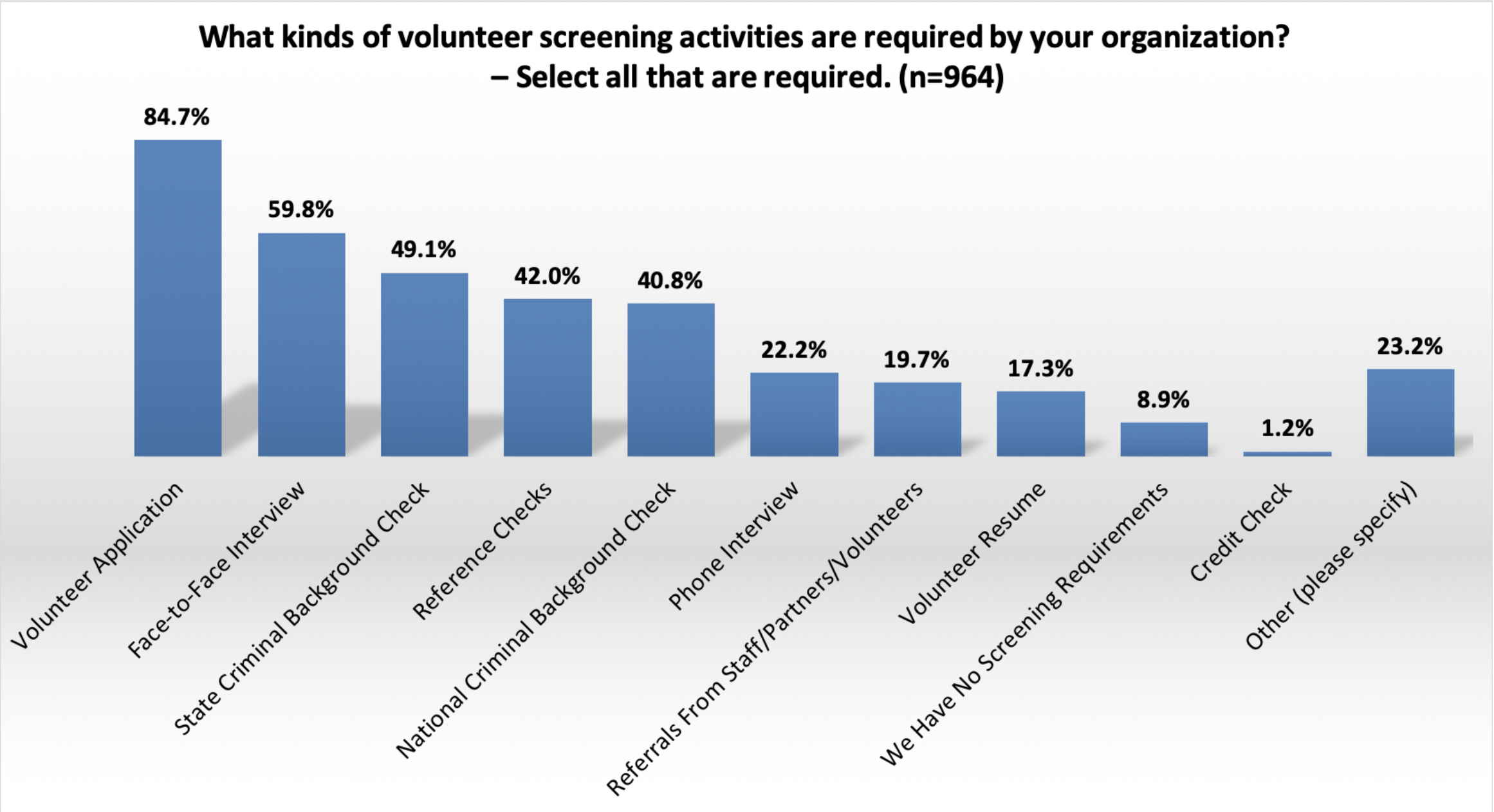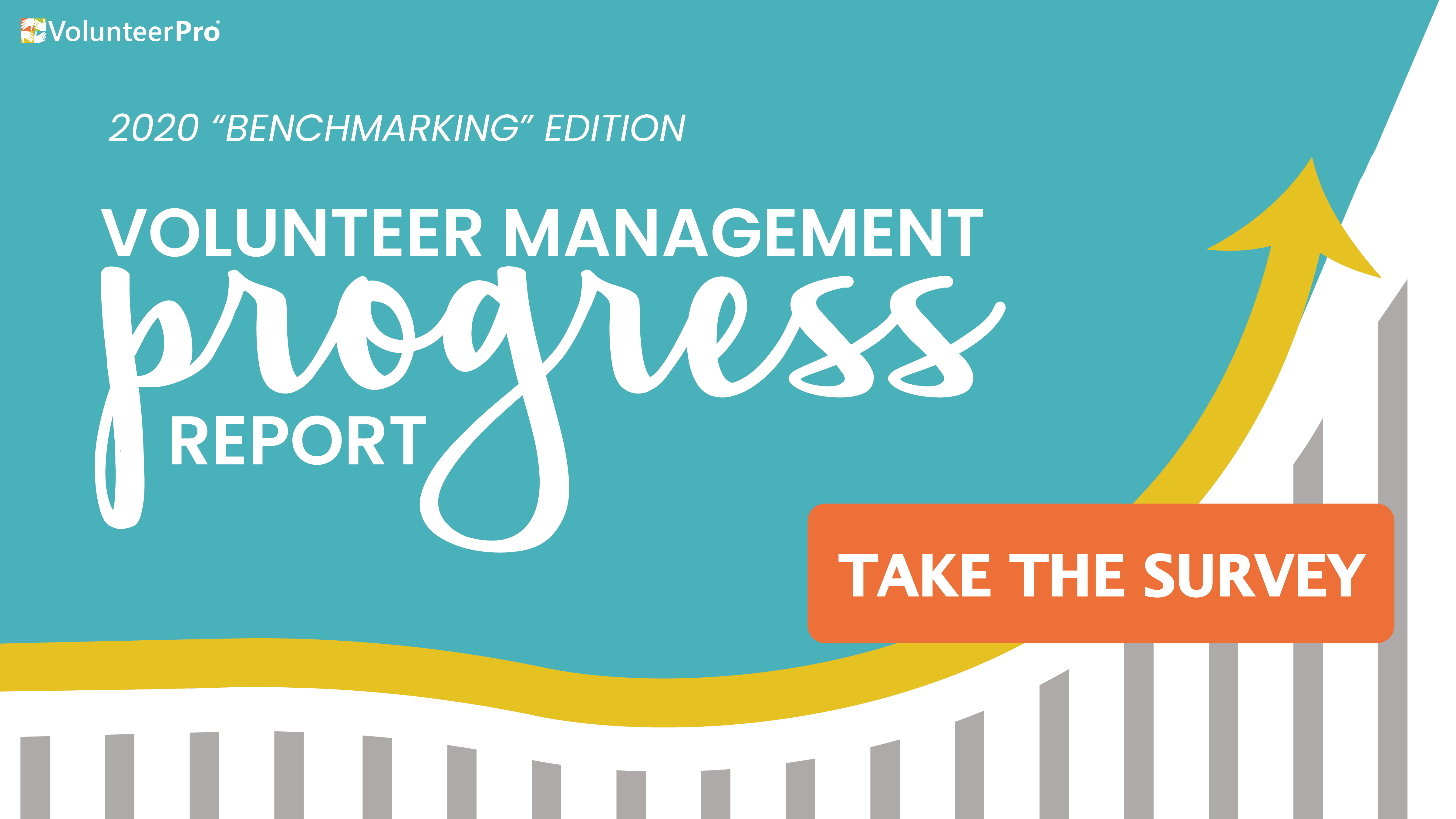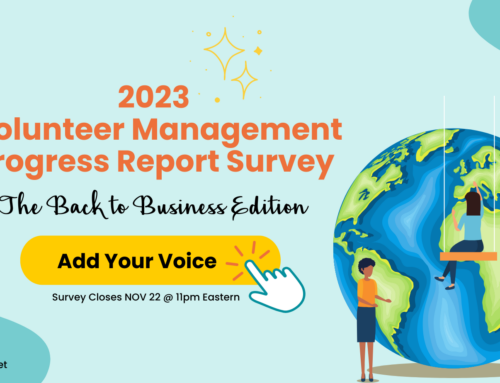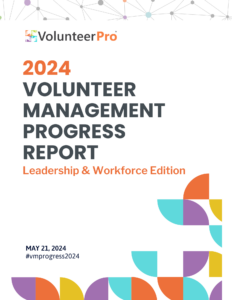
This is How to Empower Your Volunteer Background Checks
As a leader and advocate for volunteer involvement at your agency, you may feel conflicted about conducting volunteer background checks.
After all, volunteers work for free, don’t they? Can we really expect this from them? What does it say about our level of trust? Nothing’s happened so far, so why bother?
The reasons to screen volunteers appropriately are many and varied. At the most fundamental, having a proper screening process in place helps protect the health and safety of everyone – volunteers, employees, partners, and those you serve.
In addition, proper screening can help protect your organization against liability in a lawsuit by showing that your organization performed its due diligence when it comes to volunteers.
Furthermore, your organization is also responsible for demonstrating a standard of care in volunteer management. In general, these practices should align with established standards of good practice, which include screening and matching volunteers in ways that are appropriate for your organization and its level of accepted risk.
By the same token, in addition to volunteer screening practices, part of your risk management approach should also include ensuring and promoting inclusive and anti-discriminatory practices in volunteer management.
By definition, volunteer screening will exclude members of the public who do not meet your applicant criteria. As you develop policies, pause for a moment and consider which practices may have an impact on who you can invite to join. Then, you must decide whether or not the trade-offs make sense for you.
In their booklet Managing Volunteers: Balancing Risk and Reward, the Nonprofits Insurance Alliance suggests the following two levels of screening for regular, ongoing volunteer involvement. The greater the risk, the more extensive the screening process should be.
Level 1: Basic Screening Process
- Written Applications
- Interviews
- Personal Reference Checks
Level 2: Rigorous Screening Process
- Written Applications
- Interviews
- Personal Reference Checks
- Official Agency Record Checks
- License Verifications
- Additional Reference Checks
For one-time event or episodic volunteers, they suggest an amended screening process, which may be limited to a short application form.
If your screening process is shortened, consider whether the activity warrants additional supervision. Take into consideration the population served, whether money is handles, the kinds of sensitive data they may encounter, the relative risk of the activity, and any other items that make sense in your context.
In the end, your policy should reflect the values of your organization and the due diligence required when engaging the community in your mission.
It’s a delicate balance.
What Are Other Nonprofits Doing?
Wondering how other organizations approach volunteer screening?
In the 2016 Volunteer Management Progress Report survey, we asked leaders of volunteers to share what methods they used to screen volunteer applicants. The use of a volunteer application and face-to-face interviews were consistently required as screening activities across most causes. Four out of five (84.7%) used volunteer applications, and three out of five (59.8%) used face-to-face interviews.
Only about half (49.1%) conducted state-based criminal background checks and slightly less (40.8%) conducted national criminal background checks. In addition, state and national criminal background checks were used by half of organizations with budgets of over $5.1M.
2016 Volunteer Management Progress Report Screening Activities

Other screening activities cited in the survey included:
- Volunteer Training and Orientation as a Screening Tool
- Child Abuse Registry Checks
- National Sex Offender Registry Checks
- Tuberculosis (TB) Skin Tests
- Driving Records
- Drug Screening
- Health Screening
At some organizations, the screening requirements changed depending on the volunteer’s role.
Screening requirements, which may include reference checks and national criminal background checks, were most often used for organizations that focus on the following causes:
- Health Care & Medical Research
- Mental Health & Crisis Intervention
- Crime & Legal-Related
- Employment & Training
- Public Safety, Disaster Preparedness & Relief
- Recreation & Sports
- Youth Development
- Civil Rights, Social Action & Advocacy
- Child Welfare
Other screening activities we did not include in our survey, but may also be helpful in your context include:
- ID Verification
- Employment and Education Verification
- Drug Tests
- Social Media Reviews
Establishing Your Unique Volunteer Screening Policy
Before instituting volunteer background checks, it helps to first decide how they will be implemented consistently across your agency.
All volunteer applicants should be treated fairly and equitably, without special treatment. So, be sure you’ve considered all of the potential angles.
And, while your approach should be consistent, whether throughout your agency or within a specific volunteer role or department, you have some flexibility.
You may decide there are roles that don’t warrant such extensive screening. For example, youth mentors may require screening for a criminal background and child abuse registry checks, but volunteers who help with administrative tasks may not.
Or, if you engage court-ordered community service volunteers, you may need to develop a policy specifically for that population who, by definition, have a criminal background. As with event or episodic volunteers, these volunteers may require deeper supervision, depending on the circumstances.
Questions to Ask When Developing a Screening Policy
When you establish a new policy (or are reviewing an existing one), ask yourself the following:
Who will review both your policies and implementation to be sure they are in compliance with local, state, and federal laws, including all aspects of the Fair Credit Reporting Act (FCRA) or similar laws in your country?
Who will approve your new and revises policies? Because this involves human resources and legal consideration, it makes sense to have your board or executive leaders review and approve before you move forward. Final decisions related to an organization’s legal liability should not be left up to the leader of volunteers.
How will you ensure consistent application of the process per your established protocols? What training and quality assurance activities will be needed to ensure compliance and equity at every level?
Which types of screenings (see lists above) are most appropriate for each volunteer role? Should they all be the same or different across your agency, depending on the level of risk?
How far back will you look for each type of screening? In some states, background checks can only include a 7-year lookback period. What are the requirements in your area?
How often will you conduct screenings? If it’s one and done, what happens if the volunteer commits an offence during their current volunteer tenure that would have initially barred them from service?
Will you offer alternatives? To encourage greater inclusivity, will you offer a way to apply for an exemption from criminal background clearance? If so, what will be the process (see below for ideas)?
Exemptions for Criminal Offences
Your agency may also decide that you will offer an exemption to some individuals, based on the type of past offence and subject to additional documentation and screening. And, there is precedence for this.
The California Department of Social Services (CDDS) has successfully implemented a policy that allows employee and volunteer applicants to be “exempted” from criminal record clearances. The CDSS is prohibited by law from granting exemptions to individuals convicted of certain crimes (including murder, rape, torture, kidnapping, and crimes requiring sex offender registration, etc.).
The process for requesting an exemption for other crimes includes the following:
- An exemption request must be submitted in writing within 45 days with the current contact information of the applicant. This does not exempt applicants from submitting complete information about their past criminal history on their preliminary application form.
- The applicant must provide three signed character reference statements from people who know the individual (not relatives or employees at the facility), who can speak to their good character using their approved form.
- The applicant may also include certificates of any training, classes, courses, treatment, or counseling sessions completed (e.g., anger management classes, DUI classes, or nurse’s aide classes) that demonstrate the individual has worked to improve or rehabilitate themselves.
- A detailed, signed written statement from the individual describing the events surrounding each conviction (the approximate date, what happened, why it happened, and any other information they feel is important to know). They are also encouraged to state how their life has changed to prevent them from committing another crime.
- Finally, if available, documentation that the individual’s current probation or last period of probation was informal or completed (e.g. a Minute Order, court-ordered Judgment of Conviction, or a letter from the probation officer).
When setting a policy, think about how you can balance the risks and rewards of volunteer engagement at your nonprofit. Remember, your ultimate goal is to develop a fair and equitable screening process that protects everyone – volunteers, employees, partners, and those you serve.
Make sure you have your agency’s attorney review your policies. And, as always, as you implement your policies, have your attorney see if any areas inadvertently discriminate against specific volunteer groups or even break the law.
Ways to Save Money on Background Checks
By now, you may be wondering how you’re going to pay for new or expanding volunteer background checks or other screening activities.
At this point many organizations decide to forgo background checks because they don’t have the funds. But, they do so at their own peril.
Here are a few ways to save money on background check services.
Be Strategic — Set up your volunteer application process so that you conduct background checks as the last step of the screening and selection process. Applicants who do not make it through your preliminary process will not need a background check.
Be Focused – Focus only on types of screenings related to your cause or the volunteer roles. For example, your agency may decide that it may not be necessary to conduct credit checks of volunteers who don’t handle money or child abuse registry checks for volunteers who don’t work with children.
Be Transparent (but Friendly) — Be clear and open with prospective volunteers that you conduct thorough background checks and why. This will discourage potential bad actors. Make it public, but use friendly language so you don’t scare off others with no history.
Use an Existing Background Check — Ask the volunteer to share a recent background check with you. Companies like Sterling Volunteers offer sharable background checks that volunteers can share at no additional cost to your organization through their portal.
Shop around — There are several companies that offer background check services for organizations. Check prices and see if they are willing to negotiate fees. Here are a few companies to check into:
-
- Background Checks for Volunteers — https://backgroundchecksforvolunteers.com/
- Ebi — https://www.ebiinc.com/industries/non-profits-and-volunteers
- Good Hire — https://www.goodhire.com/
- NCSI — https://solutions.ncsisafe.com/volunteer-background-checks
- Secure Search — https://www.securesearchpro.com/non-profit
- Sterling Volunteers — https://www.sterlingvolunteers.com/
- Verified Credentials — https://www.verifiedcredentials.com/
See About Existing Relationships — Check with your organization’s human resource department. They may have an existing relationship with an employee background check vendor that can offer you discounts to add volunteer screening to your existing package.
Check for Discounts — Ask your insurance carrier if they have any discounted resources they may offer, or if you can save on premiums if you add background checks to your risk management plan. Carriers in the Nonprofits Insurance Alliance, for example, offer reduced rates.
Band Together — See if you can negotiate volume discounts with a vendor through a coalition of organizations with your local volunteer center or your local, regional, or national professional association.
Keep Your Volunteer Background Checks Legal
In the US, the Consumer Financial Protection Bureau is responsible for ensuring laws like the Fair Credit Reporting Act (FCRA) are followed. Because e-commerce is often conducted across national boundaries, the Act can also be applied outside the US.
In the past, we’ve shared the major mistakes nonprofits make when it comes to background checks, including some of the details you must keep in mind.
Here are some reminders:
- The ultimate goal of volunteer screening is to determine if the candidate poses a risk of harm to the clients your organization serves or to your nonprofit organization.
- If your goal is to catch potential problems before they occur, criminal background checks may not cover all of the bases. There are certainly bad actors who haven’t been caught yet. And, the lack of a criminal record doesn’t mean a volunteer will be successful. So, employ a mix of methods that don’t feel overly bureaucratic, but do ensure suitability.
- The screening process is also an opportunity to decide whether the volunteer and the needs of the organization are a good match. So, well-written volunteer position descriptions are essential and act as a self-screening tool, helping volunteers evaluate if they are suited for the role.
- Be clear with yourself and the public that an application does not guarantee a volunteer will be appointed to a position. It is within your rights to decide who is appropriate for your organization. Even if a volunteer passes a criminal background check, it does not mean they are a good fit.
- By the same token, take steps to be as inclusive as possible. Take a moment to examine your own hidden biases. There are compelling, evidence-based self-assessments you can take to uncover personal bias. The results will, no doubt, surprise you.
- Be sure to not accept a volunteer or invite them to a training session until any issues presented are resolved. It is unfair to ask a volunteer to dedicate time to training when they may not be allowed to join.
Finally, if your organization decides to take shortcuts, be aware of the risks and plan for other risk reduction strategies (such as increased supervision) you can use to compensate for shortcomings in your volunteer background check and screening process.
Want More Trends in Volunteer Management?
We love to share useable trends and data to inform your practice.
And, we need your help to keep doing so.
Please take a few minutes to participate in this year’s “state of the industry” study. As a bonus, everyone who completes the survey will be invited to a free “sneak peek” webinar on January 9, 2020. The survey takes less than 15 minutes to complete.
The more people participate, the more information we have to share!
Take the Survey Now!
Don’t delay. The deadline has been extended, but the survey will close on November 26, 2019.






